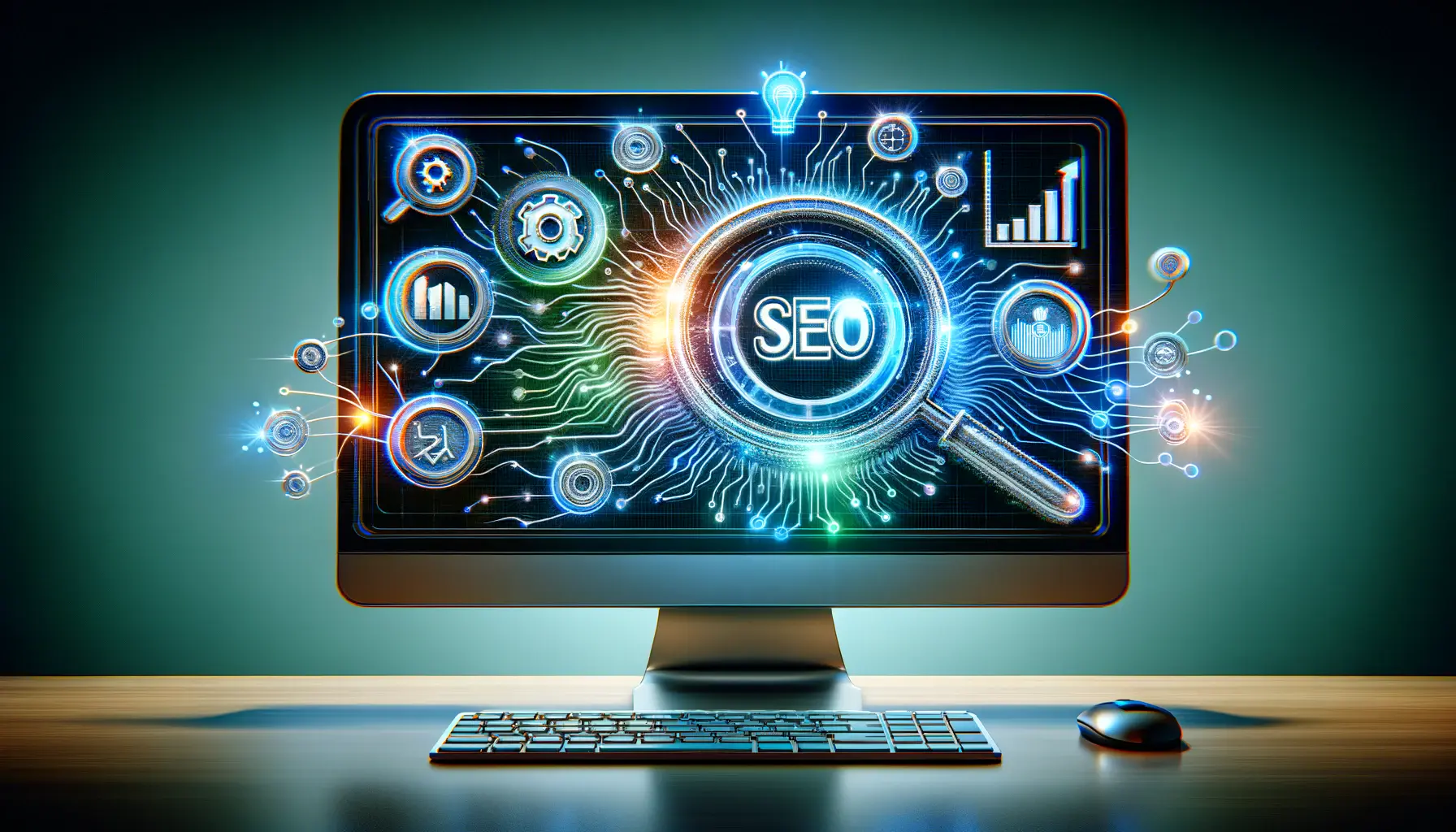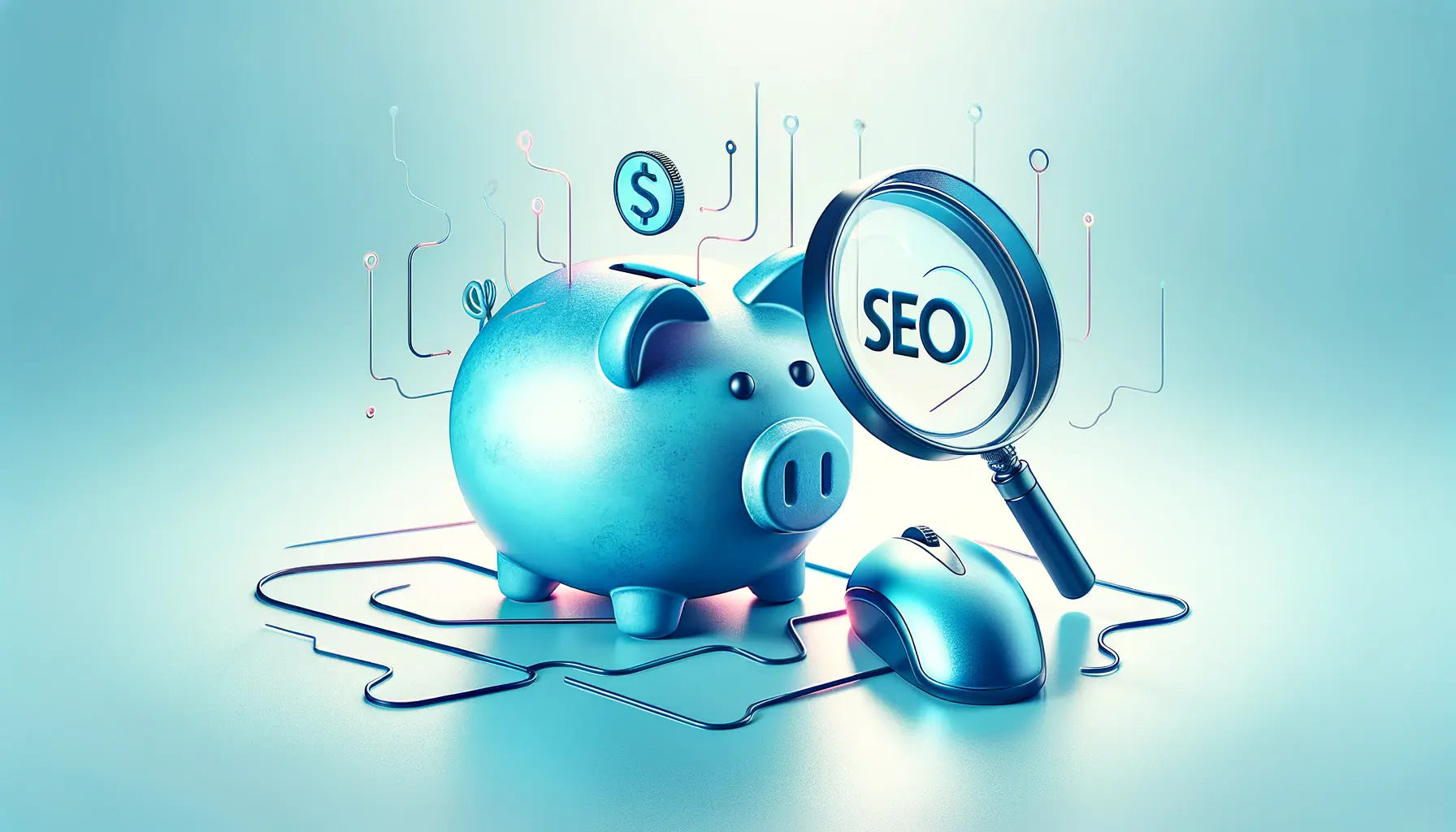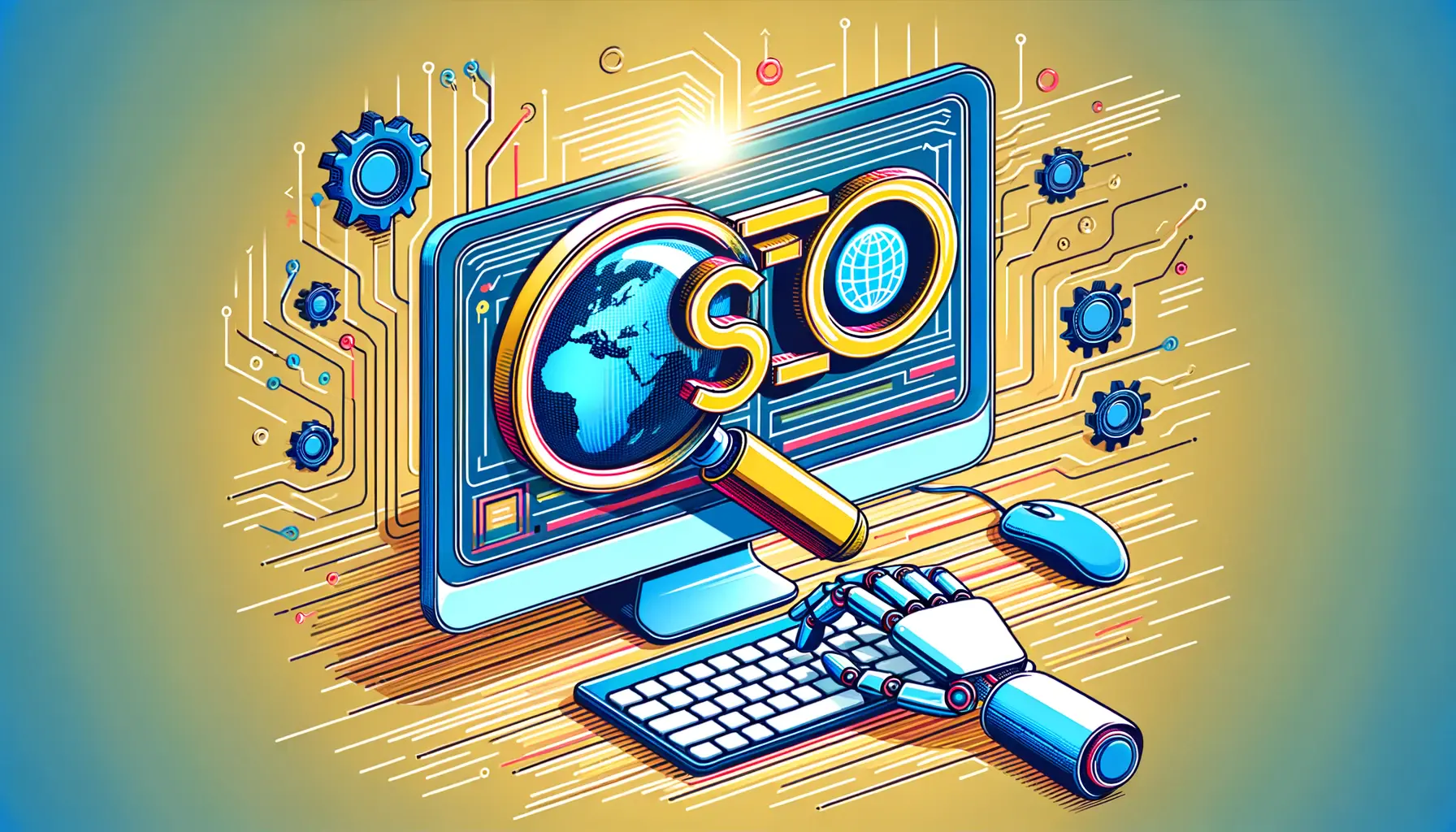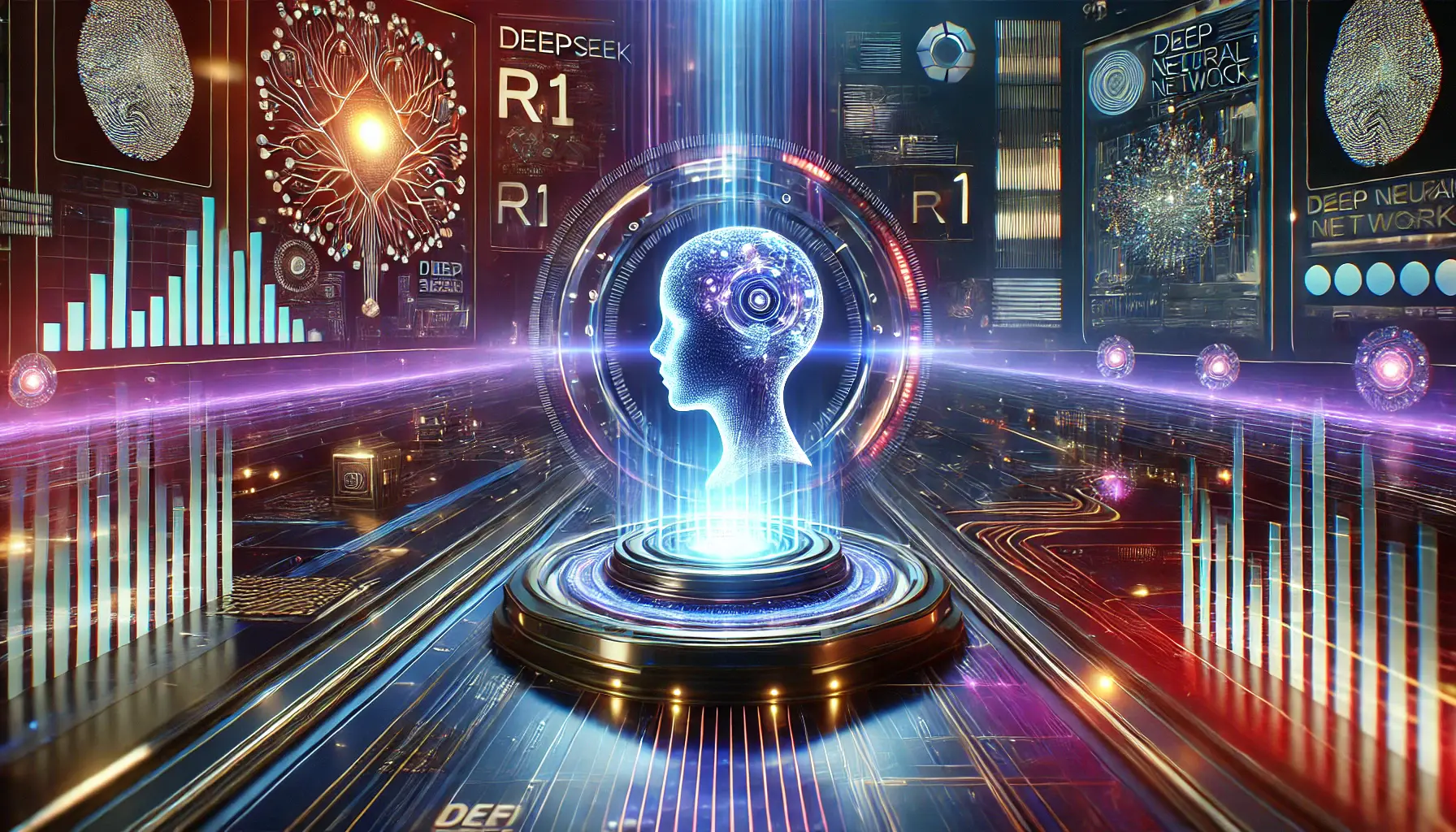The integration of Artificial Intelligence (AI) into the realm of Search Engine Optimization (SEO) has revolutionized the way startups approach their digital marketing strategies.
In an era where the digital landscape is constantly evolving, the adoption of AI technologies in SEO practices offers startups a competitive edge, enabling them to optimize their online presence more efficiently and effectively.
This transformative synergy between AI and SEO is not just about automating tasks; it’s about harnessing the power of AI to uncover insights, predict trends, and personalize experiences in ways that were previously unimaginable.
For startups, the stakes are high when it comes to establishing a strong digital footprint.
The right SEO strategy can mean the difference between obscurity and visibility, between attracting a trickle of traffic and unlocking a floodgate of targeted visitors.
Artificial Intelligence stands at the forefront of this strategic endeavor, offering tools and techniques that can dissect complex data, understand user behavior, and automate the optimization process.
This article delves into how AI is shaping the future of SEO for startups, exploring its applications, benefits, and the transformative potential it holds.
- The Evolution of SEO: From Keywords to AI
- AI-Driven Content Creation and Optimization
- Link Building and AI’s Role in SEO Networking
- AI in Technical SEO: Enhancing Website Performance
- User Experience and AI’s Impact on SEO
- Measuring SEO Success with AI Analytics
- Future Trends in AI and SEO for Startups
- Embracing the Future: AI in Startup SEO
- FAQs: Artificial Intelligence in Startup SEO
The Evolution of SEO: From Keywords to AI
The journey of SEO has seen a remarkable evolution, transitioning from simple keyword stuffing to the sophisticated use of AI algorithms that understand and predict user intent.
In the early days, SEO was primarily about incorporating relevant keywords into web content to rank higher on search engine results pages (SERPs).
However, this approach often led to content that was more focused on search engines than on providing value to the user.
The advent of AI has shifted this focus, emphasizing the creation of content that not only ranks well but also offers genuine value to the audience.
AI technologies such as machine learning and natural language processing (NLP) have become integral to modern SEO strategies.
These technologies enable search engines to understand the context and nuances of user queries, making it possible for startups to optimize their content in a way that aligns with actual user intent.
This shift towards AI-driven SEO means that startups must now focus on creating content that answers specific questions, solves problems, and engages the audience in meaningful ways.
Understanding User Intent with AI
One of the most significant contributions of AI to SEO is its ability to understand and interpret user intent.
By analyzing vast amounts of data from search queries, social media interactions, and website behavior, AI can identify patterns and trends that reveal what users are really looking for.
This insight allows startups to tailor their content and SEO strategies to meet the needs and preferences of their target audience, resulting in higher engagement rates and improved search rankings.
Moreover, AI-powered tools can automate the analysis of competitors’ SEO strategies, providing startups with valuable insights into what works and what doesn’t in their industry.
This competitive intelligence is crucial for startups aiming to carve out a niche in crowded marketplaces.
By leveraging AI to understand user intent and monitor competitors, startups can create more effective SEO strategies that drive organic growth and enhance their online visibility.
AI’s role in understanding user intent transforms SEO from a keyword-centric approach to a user-focused strategy, enabling startups to create content that resonates with their audience and ranks well on SERPs.
AI-Driven Content Creation and Optimization
The advent of AI in SEO has not only transformed how we understand user intent but also revolutionized the process of content creation and optimization.
Startups now have the tools to generate content that is not only relevant and engaging but also perfectly optimized for search engines.
AI-driven content strategies enable businesses to produce material that aligns with the nuanced demands of both their audience and search engine algorithms.
At the heart of AI-driven content creation is the ability to analyze and predict the types of content that will perform best for specific keywords and topics.
This predictive capability ensures that startups can focus their efforts on producing content that has the highest potential for search visibility and user engagement.
Enhancing Content Relevance with AI
AI tools leverage data analytics to provide insights into trending topics, popular search queries, and the content preferences of target audiences.
This information allows startups to craft content strategies that are highly relevant and timely.
By understanding what their audience is interested in, startups can create content that addresses those interests, thereby increasing the likelihood of engagement and sharing.
Furthermore, AI can help optimize existing content by suggesting improvements based on search engine performance data.
This might include recommendations for adjusting the structure of articles, enhancing readability, or incorporating specific keywords and phrases that have been identified as valuable for ranking purposes.
Personalization at Scale
Personalization is a key benefit of AI in the context of SEO.
By analyzing user data, AI can help startups deliver personalized content experiences to their website visitors.
This level of personalization ensures that users are presented with content that is most relevant to their interests and search history, significantly improving engagement rates and the overall user experience.
AI-driven SEO tools can segment audiences based on their behavior and preferences, allowing for the creation of tailored content that speaks directly to different segments.
This approach not only boosts SEO performance by increasing dwell time and reducing bounce rates but also enhances brand loyalty by making users feel understood and valued.
- Keyword Optimization: AI tools suggest the most effective keywords and phrases to include in content, ensuring that it ranks well for relevant searches.
- Content Formatting: Recommendations on content structure, headings, and the inclusion of multimedia elements to improve user engagement and SEO.
- Performance Tracking: Continuous analysis of content performance, providing insights for further optimization and refinement.
Leveraging AI for content creation and optimization allows startups to stay ahead in the competitive digital landscape, ensuring their content resonates with both search engines and their target audience.
Link Building and AI’s Role in SEO Networking
Link building remains a cornerstone of effective SEO strategies, and AI has introduced innovative ways to enhance this aspect of SEO for startups.
The process of acquiring high-quality backlinks from reputable sites is crucial for improving search engine rankings and driving referral traffic.
AI technologies streamline link-building efforts, making it easier for startups to identify opportunities, automate outreach, and monitor the success of their link-building campaigns.
AI-powered tools can analyze the web to identify potential link-building opportunities, evaluating the relevance and authority of websites in relation to a startup’s niche.
This targeted approach ensures that efforts are focused on acquiring links that will have the most significant impact on SEO performance.
Automating Outreach and Relationship Building
One of the most time-consuming aspects of link building is outreach.
AI can automate much of this process, from identifying contact information to personalizing outreach messages.
By leveraging natural language processing, AI tools can craft personalized emails that are more likely to elicit positive responses, thereby increasing the efficiency and success rate of link-building campaigns.
Moreover, AI can help maintain relationships with key influencers and authoritative sites in a startup’s industry.
By analyzing communication patterns and preferences, AI tools can suggest the best times to reach out and the most effective messaging strategies, ensuring ongoing engagement and collaboration.
Monitoring Link Health and Value
Not all backlinks are created equal, and their value can change over time.
AI tools continuously monitor the health and relevance of backlinks, alerting startups to any changes that could impact their SEO performance.
This includes identifying broken links, assessing the risk of penalties from search engines for low-quality links, and suggesting opportunities to acquire new, high-value links.
Additionally, AI can evaluate the overall link profile of a startup’s website, providing insights into the diversity and quality of its backlinks.
This analysis helps startups understand their position in the competitive landscape and adjust their link-building strategies accordingly.
- Opportunity Identification: AI tools scan the web for high-quality link-building opportunities relevant to a startup’s niche.
- Outreach Automation: Streamlining the outreach process with personalized communication, increasing the success rate of link-building efforts.
- Link Health Monitoring: Continuous assessment of backlink quality and relevance, ensuring that a startup’s link profile remains robust and beneficial.
Effective link building, powered by AI, not only enhances a startup’s SEO performance but also builds its authority and credibility in the digital space.
AI in Technical SEO: Enhancing Website Performance
The technical aspects of SEO are critical for ensuring that a website is accessible, understandable, and favored by search engines.
AI plays a pivotal role in optimizing these technical elements, from improving site speed to ensuring mobile-friendliness, thus directly impacting a startup’s search engine rankings.
By leveraging AI, startups can diagnose and rectify technical SEO issues more efficiently, ensuring their websites meet the highest standards of performance and user experience.
AI-driven tools can crawl websites in a manner similar to search engine bots, identifying issues that could hinder search performance, such as broken links, improper redirects, or slow loading times.
This proactive identification allows for immediate corrections, significantly reducing the risk of negative impacts on SEO rankings.
Optimizing Site Speed and Mobile Usability
Site speed is a critical factor in user experience and SEO.
AI tools analyze a website’s loading times, suggesting specific optimizations to improve speed, such as image compression or code minification.
Additionally, with the increasing prevalence of mobile browsing, AI ensures that websites are optimized for mobile users, adjusting layouts and functionalities to provide a seamless experience across all devices.
Mobile usability is not just about responsive design; it’s about creating an intuitive user experience that aligns with how people use their mobile devices.
AI can help tailor content and site structure to meet these needs, enhancing both user satisfaction and SEO performance.
Enhancing Website Security
Website security is another critical aspect of technical SEO that AI can help improve.
Search engines prioritize secure websites in their rankings, and AI tools can identify vulnerabilities that might compromise a site’s security.
By addressing these issues, startups can protect their users and improve their search engine rankings.
AI-driven security measures include the detection of unusual access patterns, the identification of potential security breaches, and the recommendation of best practices for maintaining a secure website.
This proactive approach to security not only safeguards the website and its users but also contributes positively to its SEO performance.
- Site Speed Optimization: AI identifies and suggests fixes for factors slowing down a website, enhancing user experience and SEO.
- Mobile Optimization: Tailoring website design and functionality for optimal mobile user experience, crucial for SEO.
- Security Enhancements: AI tools detect and mitigate security risks, contributing to a safer website and better SEO rankings.
AI’s contribution to technical SEO ensures that startups can maintain websites that are not only fast and user-friendly but also secure, significantly boosting their SEO performance.
User Experience and AI’s Impact on SEO
User experience (UX) has become an integral part of SEO strategies, with search engines increasingly prioritizing sites that offer a high-quality user experience.
AI is at the forefront of enhancing UX by personalizing user interactions, optimizing site navigation, and ensuring content relevance.
For startups, leveraging AI to improve UX is not just about satisfying search engine algorithms; it’s about creating meaningful connections with their audience, leading to increased engagement, loyalty, and conversions.
AI-driven analytics tools go beyond traditional metrics to provide deeper insights into user behavior and preferences.
These insights enable startups to tailor their websites and content to meet the specific needs and expectations of their audience, thereby improving the overall user experience.
Personalizing User Interactions
Personalization is a key component of a positive user experience.
AI technologies allow startups to personalize website content and interactions based on individual user behavior and preferences.
This can range from recommending relevant content to customizing email marketing messages.
Such personalization enhances the user’s engagement with the site, encouraging longer visits and more frequent returns.
AI can also automate the personalization process, making it scalable across thousands of users without requiring manual input.
This ensures that every user feels valued and understood, significantly improving the perception of the brand and its online presence.
Optimizing Site Navigation and Structure
AI plays a crucial role in optimizing site navigation and structure for better user experience.
By analyzing user behavior data, AI can identify patterns and preferences in how users interact with a website.
This information can be used to streamline site navigation, making it easier for users to find the information they’re looking for.
Moreover, AI can suggest structural changes to a website that enhance its usability.
For example, it might recommend reorganizing content categories or simplifying the checkout process in an e-commerce site.
These optimizations make the website more user-friendly, which is a critical factor in SEO performance and user satisfaction.
- Content Personalization: Tailoring content and interactions to individual user preferences, enhancing engagement and loyalty.
- Navigation Optimization: Using AI to streamline website navigation, improving the ease of finding information and interacting with the site.
- Structural Improvements: AI-driven suggestions for website structure enhancements, boosting usability and user satisfaction.
Improving user experience through AI not only meets SEO objectives but also builds a stronger, more engaging online presence for startups, driving growth and success.
Measuring SEO Success with AI Analytics
In the dynamic world of SEO, the ability to measure and analyze performance accurately is crucial for startups aiming to optimize their online presence.
AI-powered analytics tools offer advanced capabilities for tracking SEO success, providing insights that go beyond traditional metrics.
These tools enable startups to understand the impact of their SEO strategies in real-time, allowing for agile adjustments and strategic decision-making.
AI analytics delve into the nuances of user behavior, search engine rankings, and the effectiveness of content and link-building strategies.
By harnessing the power of AI, startups can identify areas of success and opportunities for improvement, ensuring their SEO efforts are as effective as possible.
Advanced Performance Tracking
AI-powered tools offer a level of performance tracking that traditional analytics cannot match.
They can analyze vast amounts of data from various sources, providing a comprehensive view of a startup’s SEO performance.
This includes not just rankings and traffic but also engagement metrics, conversion rates, and the ROI of SEO activities.
Such detailed analytics help startups refine their strategies for maximum impact.
Furthermore, AI analytics can predict the potential success of future SEO strategies based on historical data and current trends.
This predictive capability allows startups to make informed decisions about where to allocate resources for the best possible outcomes.
Real-Time Insights and Adjustments
One of the most significant advantages of AI in SEO analytics is the ability to provide real-time insights.
This immediacy enables startups to quickly identify and respond to changes in search engine algorithms, competitor strategies, or user behavior.
Real-time analytics ensure that SEO strategies remain flexible and adaptive, crucial for maintaining high search rankings in a constantly evolving digital landscape.
AI tools can also automate the process of A/B testing different SEO tactics, from headline variations to keyword densities, providing clear data on what works best.
This level of automation and insight significantly accelerates the optimization process, ensuring that startups can achieve and maintain a competitive edge in their SEO efforts.
- Comprehensive Data Analysis: AI analytics provide a holistic view of SEO performance, including engagement, conversion, and ROI metrics.
- Predictive Insights: Leveraging historical data and trends to forecast the success of SEO strategies, guiding resource allocation.
- Real-Time Adjustments: Immediate insights allow for quick responses to market changes, keeping SEO strategies agile and effective.
Relying solely on traditional SEO metrics without the depth and agility offered by AI analytics can lead startups to miss out on critical insights and opportunities for optimization.
Future Trends in AI and SEO for Startups
The intersection of AI and SEO is an area of rapid innovation and growth, offering startups unprecedented opportunities to enhance their online visibility and engagement.
As we look to the future, several trends are emerging that will further shape the relationship between AI and SEO.
Staying ahead of these trends will be crucial for startups aiming to leverage the full potential of AI in optimizing their search engine strategies.
Advancements in AI technology will continue to refine and expand the capabilities of SEO tools, making them more predictive, personalized, and efficient.
This evolution will enable startups to not only keep pace with changes in search engine algorithms but also anticipate the needs and behaviors of their target audience with greater accuracy.
Increasing Personalization and User Intent Focus
As AI becomes more sophisticated, the ability to personalize content and predict user intent will reach new levels of precision.
This will allow startups to create highly targeted SEO strategies that align closely with the specific interests and needs of their audience.
The focus on user intent, powered by AI, will enable startups to craft content and user experiences that are more engaging and effective at converting visitors into customers.
Moreover, AI will facilitate a deeper understanding of semantic search, enabling startups to optimize their content for the way people naturally speak and ask questions.
This is particularly relevant in the context of voice search and the increasing use of digital assistants, which rely heavily on natural language processing capabilities.
Enhanced Technical SEO Through AI Automation
Technical SEO is set to benefit significantly from advancements in AI, with automation playing a key role in identifying and fixing issues that impact website performance and search engine rankings.
AI will make it easier for startups to ensure their websites are fast, secure, and mobile-friendly, meeting the technical requirements of search engines and the expectations of users.
Additionally, AI will drive innovations in site architecture and internal linking strategies, making websites more intuitive and easier to navigate.
This will not only improve user experience but also enhance the ability of search engine bots to crawl and index content, further boosting SEO performance.
- Advanced Personalization Techniques: Leveraging AI to tailor content and marketing strategies to individual user behaviors and preferences.
- Deeper Semantic Search Optimization: Optimizing for natural language and voice search to improve visibility in a changing search landscape.
- Automated Technical SEO Improvements: Using AI to streamline the optimization of website performance and technical elements.
As AI continues to evolve, its integration with SEO strategies will become more seamless and powerful, offering startups innovative ways to enhance their online presence and connect with their audience.
The future of SEO in the era of AI holds exciting possibilities for startups willing to embrace these technologies and trends, setting the stage for unprecedented levels of engagement and success in the digital realm.
Embracing the Future: AI in Startup SEO
The integration of Artificial Intelligence into SEO strategies represents a pivotal shift in how startups approach digital marketing and online visibility.
As we have explored, AI offers a multitude of benefits, from enhancing content relevance and user experience to optimizing technical SEO aspects and link-building efforts.
The future of SEO, deeply intertwined with AI, promises even greater opportunities for startups to refine their strategies, connect with their audience, and achieve their business objectives.
The Strategic Advantage of AI in SEO
AI’s role in SEO transcends mere automation; it provides startups with strategic advantages that were once out of reach.
The ability to analyze vast datasets, predict trends, and personalize user experiences at scale allows startups to craft SEO strategies that are not only effective but also highly efficient.
This efficiency is crucial in the fast-paced digital landscape, where staying ahead of SEO trends and algorithm changes can significantly impact a startup’s online success.
Key Takeaways for Startups
- Personalization and user intent will dominate future SEO strategies, with AI providing the insights necessary to tailor content and experiences to individual user preferences.
- Technical SEO will benefit from AI-driven automation, making websites faster, more secure, and more accessible to both users and search engines.
- Link-building and content optimization strategies will become more sophisticated, leveraging AI to identify opportunities and enhance the relevance and authority of startup websites.
In conclusion, the fusion of AI and SEO offers a transformative pathway for startups aiming to enhance their digital presence and engage with their target audience more effectively.
By adopting AI-driven SEO strategies, startups can navigate the complexities of the digital landscape with greater agility and precision, ensuring their online presence is not only visible but also resonant with the needs and preferences of their audience.
As we look to the future, the role of AI in startup SEO will undoubtedly continue to evolve, offering new opportunities for innovation and growth in the ever-changing world of digital marketing.
Want your website to top Google search rankings? Leave the SEO to our professional agency!
FAQs: Artificial Intelligence in Startup SEO
Explore the most common inquiries about integrating Artificial Intelligence into SEO strategies for startups.
No, AI will not replace SEO specialists and writers but will enhance their work by automating routine tasks and providing insights for strategy optimization.
Key AI SEO use cases include content optimization, keyword research, user intent analysis, and technical SEO enhancements.
AI can improve SEO strategies by offering predictive analytics, personalizing user experiences, and streamlining content creation and optimization processes.
AI is crucial for modern SEO as it enables more accurate user intent understanding, enhances content relevance, and automates complex SEO tasks.
Generative AI changes SEO by enabling the creation of highly relevant and personalized content at scale, improving both user engagement and search rankings.
Benefits include increased efficiency in content production, improved content relevance and personalization, and enhanced ability to engage the target audience.
AI impacts SEO strategies by refining keyword optimization, content personalization, and technical SEO, leading to more effective search results.
Yes, search engines can identify AI-generated content, but the focus is on the quality and relevance of the content rather than its origin.












